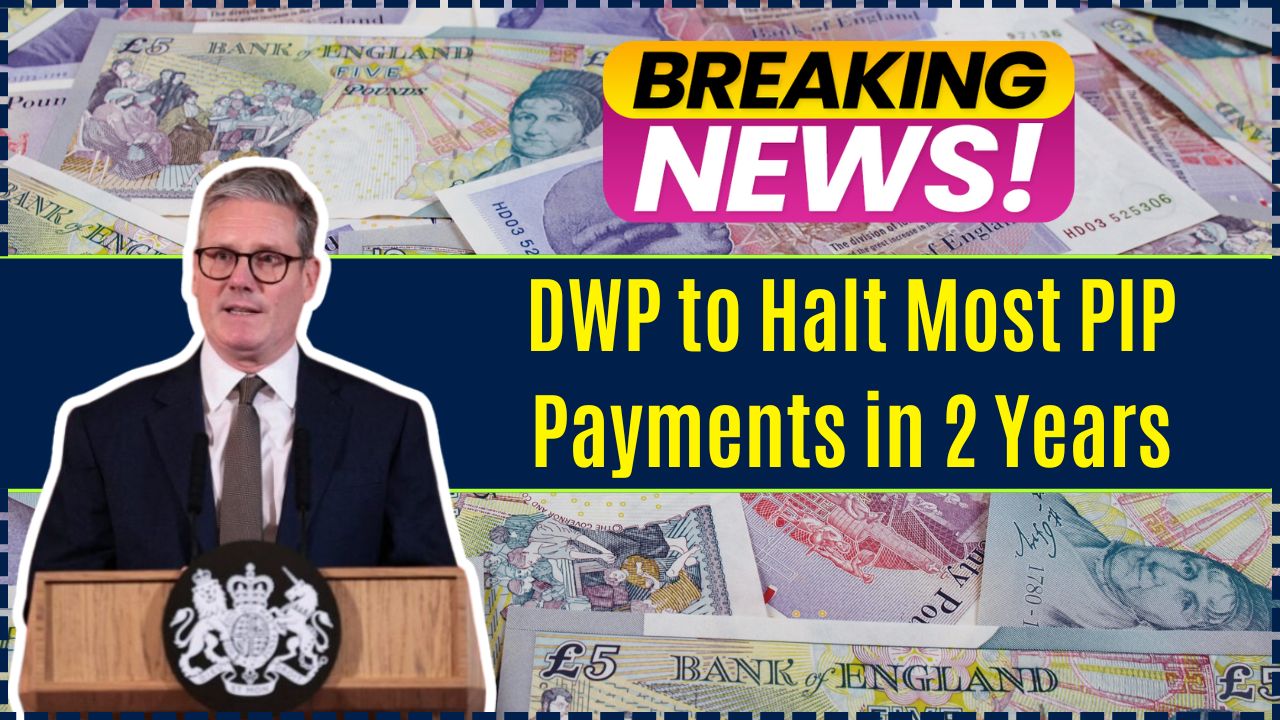The Department for Work and Pensions (DWP) has confirmed that most Personal Independence Payment (PIP) benefits will be halted within the next two years, signaling a massive shift in how the UK supports people with disabilities. With over 3.5 million claimants currently relying on PIP, this change has stirred widespread concern and uncertainty.
Here’s everything you need to know: who is affected, what the replacements might be, and how to prepare for the transition.
What Is PIP?
Personal Independence Payment (PIP) is a benefit designed to help people living with disabilities or long-term health conditions manage extra daily living and mobility costs. It consists of two components:
-
Daily Living: For help with everyday tasks
-
Mobility: For help getting around
Each component has two rates—standard and enhanced—depending on the severity of the condition.
Summary of the Announced Changes
| Aspect | Details |
|---|---|
| Announcement | DWP to halt most PIP payments within two years |
| Affected Benefit | Personal Independence Payment (PIP) |
| New Format | Likely shift from cash payments to vouchers or direct services |
| Start of Rollout | Mid-2025 |
| Who’s Affected | Most new applicants and many current recipients |
| DWP’s Official Site | www.gov.uk |
Why Is PIP Being Reformed?
The DWP cites rising costs and system inefficiencies as key reasons behind the overhaul. With PIP claims increasing each year, the current format has been deemed financially unsustainable.
The proposed changes are part of a broader welfare reform plan aiming to:
-
Improve service delivery
-
Reduce fraud and misuse
-
Promote independence and employment for people with disabilities
However, disability advocacy groups have warned that the abrupt shift away from direct financial support may leave many without sufficient means to manage their health conditions.
What Will Replace PIP?
Though the government hasn’t finalized replacements, the proposed alternatives include:
-
Vouchers for medical equipment or care services
-
Direct services such as access to therapy, transport, or home modifications
-
Limited cash assistance, likely targeted to the most severe or complex cases
This move from cash to in-kind support is intended to ensure that the resources are used specifically for health-related needs, but critics argue it could restrict personal freedom and autonomy.
Who Will Be Affected?
-
New Applicants: Most new PIP claims submitted after mid-2025 are expected to be declined in their current form.
-
Existing Claimants: Those currently receiving PIP may face more frequent reassessments, and could be shifted to the new system over time.
-
Short-Term Awards: Data shows that 79% of current PIP awards are short-term (less than two years), which makes them likely candidates for early transition to the new system.
Timeline: What to Expect and When
-
2024: DWP begins notifying existing PIP recipients about upcoming changes.
-
Mid-2025: New PIP applications mostly halted. Reassessments and transitions to new systems begin.
-
2026: Full implementation expected, with most recipients moved to alternative support schemes.
How Will It Affect Daily Life?
The change could drastically impact how beneficiaries manage their budgets and medical needs:
-
Less flexibility: Vouchers may not cover all health-related costs, such as transport or utility bills for home-based care.
-
More bureaucracy: Accessing services may involve more red tape and fewer choices.
-
Emotional toll: For many, the uncertainty is causing distress and anxiety, especially among those who rely heavily on cash payments to maintain independence.
Real Voices: What People Are Saying
“PIP pays for my specialist transport and part-time care. I’m not sure a voucher would cover that.”
— Elaine, 62, diagnosed with MS
“I get PIP to buy nutritional supplements for my rare condition. A switch to services might not even include what I need.”
— Tariq, 28
How to Prepare for the Change
Here are steps you can take now:
-
Stay Informed
Regularly check the DWP website for updates and announcements. -
Gather Documentation
Ensure your medical records, condition updates, and current PIP award letters are easily accessible. -
Speak to an Advisor
Organizations like Citizens Advice, Scope, and Disability Rights UK can help with transition planning and appeals. -
Budget and Plan
Begin reviewing how a loss or change in PIP could affect your finances, and look for alternative local or charitable support programs. -
Join the Conversation
Participate in public consultations, online forums, or petitions. Your voice can influence policy.
Additional Resources
-
Citizens Advice: Free, independent support for navigating benefits
-
Scope.org.uk: Disability charity offering guidance and advocacy
-
Turn2Us.org.uk: Helps find alternative benefits and grants
-
DWP Helpline: Direct questions about your claim to 0800 121 4433
FAQs
Q: Will all PIP payments end?
A: No, but most new applications will stop, and existing claimants may be reassessed and moved to a new system.
Q: Will cash payments be gone completely?
A: Not entirely, but the shift is toward vouchers and services to cover specific needs.
Q: How can I challenge a reassessment or denial?
A: You can request a mandatory reconsideration or appeal. Contact a benefits advisor for help.
Q: What happens if my condition worsens?
A: Report it to the DWP immediately for possible reassessment and support adjustments.
Final Thoughts
The DWP’s plan to halt most PIP payments by 2026 marks one of the most sweeping changes to disability benefits in recent history. While aimed at cost-efficiency and targeted support, it also raises valid concerns about autonomy, adequacy, and accessibility.
Beneficiaries and their families must stay proactive—staying informed, seeking advice, and preparing early will be crucial to navigating this shift. As the welfare landscape transforms, your voice and vigilance can help ensure that support remains truly supportive.












